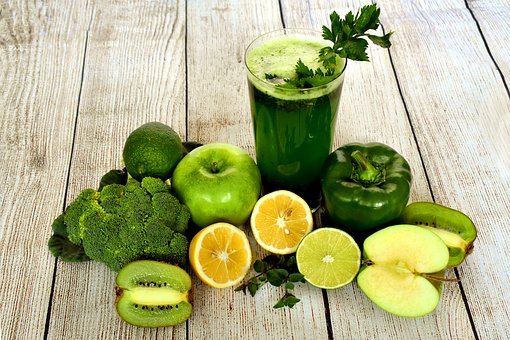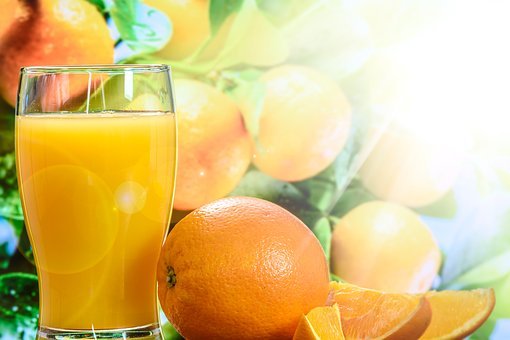Health Benefits of Vegetable Juices & Fruit Juices
Fruit juices provide vitamin C, betacarotene, calcium and magnesium, while vegetable juices (such as Kale juice) are a good source of vitamin B.
These days many of us can struggle to eat the 'five a day' of fruits and vegetables, which has long since been recommended by nutritionists, in order to remain as healthy as possible. A very simple and convenient way to increase daily intake of both fruit and vegetables is to buy or batch-make fresh fruit and vegetable juices.
Health Benefits of Fruit Juices
Including fruit juice with meals is a great way to boost daily intake of essential vitamins and minerals, which help keep one healthy. There are many high street stores which offer inexpensive juicing machines, making it simple and easy to prepare a range of nutritious juices for the whole family to enjoy. In Eat Yourself Happy, Isaac & Isaac identify key health benefits associated with drinking fruit juices, to include the following:
- Easy to digest - body can make quick use of essential nutrients
- Provide fructose - increase energy levels
- Count as one of your 'five a day'
- Plenty of vitamins - vitamin C, betacarotene (vitamin A source)
- Contain antioxidants
- Good source of folic acid
- Essential minerals - calcium, magnesium, potassium
Good quality fruit juices may be purchased from health food stores, while those found in supermarkets should be checked for ingredients. It is best to try to avoid buying fruit juices which are heavily diluted and high in sweeteners, additives, colourings and flavourings.
Health Benefits of Vegetable Juices
As with fruit juices, drinking vegetable juices is a simple and effective way to increasing intake of minerals and vitamins, necessary for maintaining good health. Many health food stores offer high-quality vegetable juices, which are easy to store in the refrigerator at home. As recognised by Isaac & Isaac (2004), health benefits associated with vegetable juice, include as follows:
Rich in vitamin A and betacarotene - carrot, spinach, watercress juice
Good source of vitamin B - kale juice
High in folic acid - Brussels sprouts (mixed with melon) juice
Rich in vitamin C - citrus and watercress juices
Good iron source - fennel/parsley/spinach juice
Tips for Good Health
It is important to avoid brushing teeth straight after drinking juices, as this can cause damage to the enamel, while all fruits and vegetables must be cleaned prior to use to avoid spreading bacteria and dirt. According to Isaac & Isaac, those who should not drink home-made or unpasteurized juices, may include:Young children
Elderly people
Those with weakened immune systems
Those suffering from diabetes must take special care not to drink large quantities of fruit juice, due to the fact that they contain sugar. Parents may also choose to dilute juices or only give children very small amounts.
As highlighted above, drinking fresh fruit and vegetable juices helps increase intake of essential vitamins and minerals which are important for maintaining good physical and mental health. Key nutrients found in different fruit and vegetable juices, include vitamin A, vitamin, B, vitamin C, folic acid, magnesium, calcium, iron and antioxidants.
Source:
Isaac & Isaac, Eat Yourself Happy London: Carroll & Brown
ISBN: 1-903258-82-0

